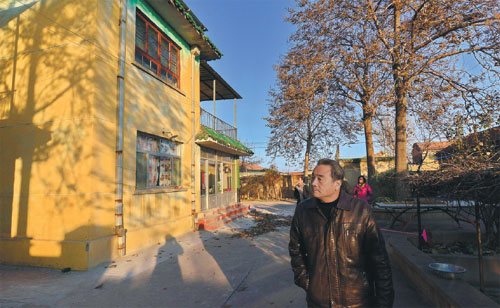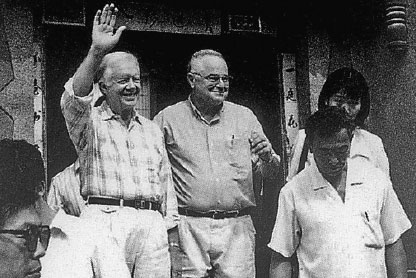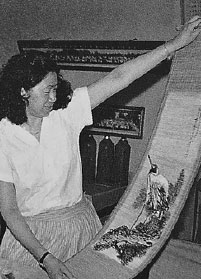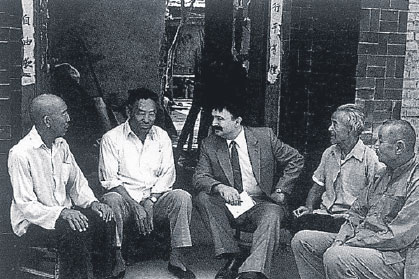The project that opened a window to the world
Updated: 2016-03-07 13:20
By Zhao Xu and Zhao Ruixue(China Daily USA)
|
||||||||
Participants look back at a unique research program that helped normalize relations between China and the United States, report Zhao Xu and Zhao Ruixue in Zouping, Shandong province.
Editor's note: At this year's two sessions - the biggest political event of the year, the deliberation of China's 13th Five-Year Plan (2016-20), which maps out the country's development path for the next five years, will be the major point of discussion. The draft plan stipulates that China will continue the reform and opening-up policy that began in the late 1970s. In the first of our in-depth reports during the two sessions, China Daily examines one of the most important academic exchanges of the 1980s, which marked the reform and opening-up program and helped the world gain greater and deeper understanding of China's growing role on the global stage.
For many years, Shi Changxiang, a chain-smoking county official from Shandong province in East China, was unaware that his tobacco addiction was regarded as a potential threat to the future of a hard-won research project between China and the United States.
The concerns were raised by Michel Oksenberg, an academic who was also a senior member of the US National Security Council. Oksenberg was closely involved in the normalization of US-China relations during the administration of president Jimmy Carter.
One of his initiatives was a cherished research project that allowed 87 US academics to visit Zouping county in Shandong between 1987 and 1991; sometimes the academics stayed for months to research issues ranging from local finance to the status of women, history to animal husbandry.
The smoking story was related by Guy Alitto, professor of history at the University of Chicago and an active participant in the project. "It can be traced back to 1979, when the late Chinese leader Deng Xiaoping visited the United States. During that visit, the two sides reached an agreement whereby the US National Academy of Sciences and Chinese institutions could exchange scholars for research programs every year," Alitto said. "Then, in 1984, Oksenberg, on behalf of the Committee for Scholarly Exchange with the People's Republic of China, wrote to Deng requesting that China provide a rural site for academic research."
Eventually, Zouping, with a population of more than 600,000, was chosen, and Shi, director of Zouping's foreign affairs' office, was tasked with overseeing the project. That was when his heavy smoking began to alarm Oksenberg.
"After his visit in the summer of 1987, Oksenberg expressed his concerns that Shi might die from smoking," Alitto recalled. "He was genuinely concerned that his 'highly possible' death might harm the project that had taken so long to hatch."
Alitto's last visit to Zouping occurred in 2012, and the 73-year-old said it felt as though he had traveled back through time to the days when China's streets looked distinctly different from those in the US.
"When I first arrived in Zouping, in 1986, the county town had only two completely paved roads, and there were still piles of hay on the streets of the oldest part of the county town. In fact, its first movie theater had just opened the year before," he said.
Feng Yuezhao, head of Fengjiacun, one of more than 800 small settlements in Zouping, said that in the 1980s, the county was "very typical of rural China. It was neither rich nor poor. Back then, we had both agriculture and industry. Overall, the collective economy dominated," the 61-year-old said.
Steep learning curve
Before the researchers could begin to get to grips with county life, they had to overcome a number of obstacles, including gaining a working knowledge of the local dialect, and a diet that included "delicacies" such as scorpions, silkworm larvae and grasshoppers.
The language barrier was also daunting for Alitto, even though he had studied Chinese and had acted as an interpreter for the first official Chinese delegation to the US in 1972 in the wake of president Richard Nixon's visit to China.
Qu Yanqing, a historian with the Zouping County Archives Office, helped Alitto to settle into local life. He witnessed the US academic change from a man with "a jarring existence" to someone who "could walk freely through almost every door in any village".
"One night, not long after we met, I invited him to my house for dinner. The next morning, an old lady who lived next door shouted to my wife over the low rammed-earth wall, 'How bold was your husband to bring that scary man home?'," Qu recalled, with laughter. "I wondered what she would have said if she'd known that the 'scary man' had gulped down more than 20 cans of beer."
Qu and Alitto have drunk together many times; sometimes with frustration - such as the time Alitto was despondent after being refused full access to the county archives - and sometimes with joy, such as Qu's 60th birthday party in 2007, 16 years after the project ended.
"He's a sincere man and a loyal friend, with a dedication to truth that I so admire as a fellow historian," Qu said, adding that he didn't need to "chaparone" Alitto when he returned to Zouping in 1988.
"Although it was a decade after the 'cultural revolution', people still tended to keep their lips zipped, especially in front of foreigners. But Alitto had a knack of putting people at ease," he said.
A casual approach
Alitto's favorite method involved casual chats with interviewees, many in their 60s and 70s, as they sat on wooden stools in a sun-drenched front yard. "Initially, I asked each of them a list of questions, as I would have done in the US, and they all balked," he said. "Then I sat down and started talking about my own childhood, the things that I ate and the games that I played. Gradually they unwound."
Alitto's communication skills allowed him to broach sensitive topics. "I wanted to know more about the Great Famine between 1959 and 1961. But given the sensitivity of the issue, few people spoke freely about it," he said. "So I mentioned not the Great Famine, but a locust plague that had ravaged Zouping in the 1920s.
"I remember asking a man in his 80s, 'You must have seen deaths during the locust plague, right?' And his immediate reaction was: "No, no, no, not many died at that time. But a lot of people died during the Great Famine.'"
Alitto often found himself in the role of a confidant: "Some people told me that their fathers beat their mothers, or that their fathers were opium smokers or gamblers - things that hurt, yet had never been mentioned before."
Nowadays, the two buildings the researchers occupied in Fengjiacun stand as a reminder of their time in Zouping and also of the heyday of the village. Built in 1987, the 16-room, two-story houses were used by all the academics who visited during the five-year project. The exteriors still carry the original yellow paint and boast yellow and green rooftiles, but inside, the rooms are dilapidated, with cracked ceilings, peeling walls and ill-fitting windows that allow the winter wind to whistle through.
However, many features indicate the efforts the local government made to make the foreign guests comfortable. "After the buildings were completed, I traveled to Zibo, Shandong's fourth-biggest city, about 20 kilometers away, to buy flush toilets and porcelain bathtubs. Back then, those things were absolute novelties in Zouping," Feng said.
In the 1980s and '90s, Feng Yongxi, a distant relation of Feng Yuezhao, was the Party chief of Fengjiacun. Alitto remembers him as "gruff upon initial contact, but (he) turned out to be a very sweet person; generous, understanding and accommodating". In 1987, Alitto invited Feng Yongxi to dinner at his house when the official was a member of the first delegation from Zouping to visit Chicago.
Feng Yongxi's old home stands a few minutes' walk from the researchers' residences. Although his bedroom has been empty since he died in 2013, at age 81, black-and-white photos still hang on the wall, showing him with his friends from the US.
According to Feng Yuezhao, the US academics lived in Zouping and Fengjiacun during the best of times. "Back then, agriculture formed the basis of our economy. Several years of large harvests made our village the richest in Zouping," he said.
That's no longer the case. On a chilly winter afternoon, Fengjiacun's streets were almost deserted. "Nearly all the young people have left to work in factories. Few of them are interested in agriculture," Feng Yuezhao said.
A time of change
Many changes occurred during and after the US scholars' tenure in the county, Alitto said. "Economic reform unleashed the vast amount of entrepreneurial energy that had always been embodied by the Chinese and their traditions," he said, referring to the "periodic market system" - informal bazaars - that he believes was unique to rural China. "Goods were bought and sold, and information was exchanged at a speed that left me in awe."
Jean Oi, professor of Chinese politics at Stanford University and director of the Stanford China Program, said few people predicted many of the changes. Having first arrived in Zouping in 1988, Oi has revisited many times, often accompanied by her students. "The shift to the private sector was already clear by the late 1990s. But as a consequence of changes in development in different parts of the county, there were a number of surprising changes in the economic fortunes of different townships," she wrote in an e-mail exchange with China Daily.
"Firms that prospered in the early years of reform were overtaken by others. By the end of the 1990s, many successful and powerful collectively owned township and village enterprises were sold to private owners in a process directed by the county government," said Oi, who conducted research into political economy during her time in Zouping. "Many of the changes mirrored larger ones taking place throughout China."
According to Oi, the thriving local industrial sector - the country's biggest cotton textile company, Weiqiao Textile, is headquartered in Zouping - means young people who quit agriculture can find jobs nearby and therefore don't have to work thousands of miles from home. "In that sense, Zouping may not be as representative of rural China as it once was," she said.
Oksenberg, who died in 2001, was Oi's dissertation advisor at the University of Michigan and later a colleague at Stanford. Oi described him as "a true Zoupinger, who had picked up the local accent", and said the US scholars' experience of living in the county was "essential for the understanding of the challenges of governing a country as large and diverse as China".
This "in-depth knowledge of China beyond Beijing" informed the US government's China policy. In July 1997, a decade after the project was launched, Zouping was visited by then-president Jimmy Carter and his wife Rosalynn. Shortly after he returned to the US, Carter wrote an article for The New York Times under the headline, "It is wrong to demonize China".
Qu, the historian, considered Zouping lucky to have been chosen as the site for the project. "Through a crack in the door, the rest of the world and Zouping saw each other and changed each other, in ways that were subtle, yet significant."
Life has come full circle for Alitto, who has visited the county 20 times. Of Italian descent, but born and raised in Pennsylvania, Alitto's extended family means he has always been conscious of his own, and others', cultural history.
"The continuity of Chinese culture and civilization, as evidenced in rural life, resonated with something deep inside me," said Alitto, who in the late 1980s rummaged through the files at the Library of Congress in Washington to unearth valuable information for Qu, who was writing an official history of Zouping.
He lamented the deaths of his old friends in China, including Shi Changxiang, who died early last year, at age 79: "In 1992, I told Shi about Oksenberg's concerns, many years after Oksenberg had predicted that he would die from smoking. We both had a good laugh about that."
Contact the writers at zhaoxu@chinadaily.com.cn
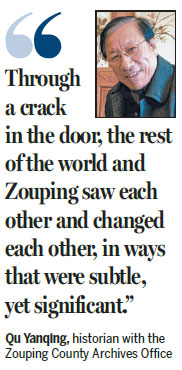
|
Feng Yuezhao, head of Fengjiacun village, stands in front of the 16-room buildings that were built in 1987 to provide homes for academics from the United States in Zouping county, Shandong province. Ju Chuanjiang / China Daily; Historical Photos provided to China Daily |
|
Former US president Jimmy Carter (left) and US academic Michel Oksenberg (center) visit Zouping in 1997. |
|
US scholar Jean Oi admires a traditional Chinese painting. |
|
Guy Alitto, professor of history at the University of Chicago, talks with villagers in Zouping in the late 1980s. |
(China Daily USA 03/07/2016 page3)
- Former US First Lady Nancy Reagan dies at 94
- Solar Impulse 2 back in the air after battery upgrade
- Jailed 'El Chapo' desperate to be extradited
- S. Korea, US to launch formal talks on THAAD
- Kim Jong Un says to further strengthen nuclear weapons in quality
- Spanish Princess testifies in tax fraud trial

 Boao airport all set for upcoming Asian forum
Boao airport all set for upcoming Asian forum
 Snapshots from the 'two sessions'
Snapshots from the 'two sessions'
 Turn of virtual reality cameras at two sessions
Turn of virtual reality cameras at two sessions
 China's home-made expedition mothership 'Zhang Qian' to be launched in March
China's home-made expedition mothership 'Zhang Qian' to be launched in March
 Top 10 countries boosting China's tourist inflows
Top 10 countries boosting China's tourist inflows
 Airplane restaurant to open in Wuhan
Airplane restaurant to open in Wuhan
 World premiums at Geneva Motor Show
World premiums at Geneva Motor Show
 China's top 10 tech startups
China's top 10 tech startups
Most Viewed
Editor's Picks
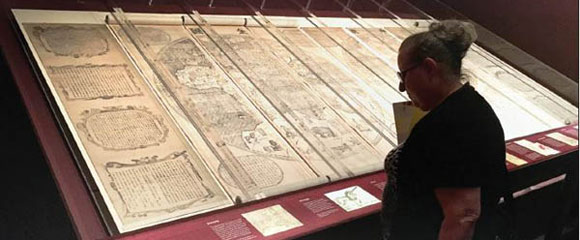
|
|
|
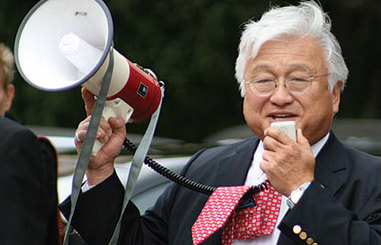
|
|
|
Today's Top News
What ends Jeb Bush's White House hopes
Investigation for Nicolas's campaign
Will US-ASEAN meeting be good for region?
Accentuate the positive in Sino-US relations
Dangerous games on peninsula will have no winner
National Art Museum showing 400 puppets in new exhibition
Finest Chinese porcelains expected to fetch over $28 million
Monkey portraits by Chinese ink painting masters
US Weekly

|

|
